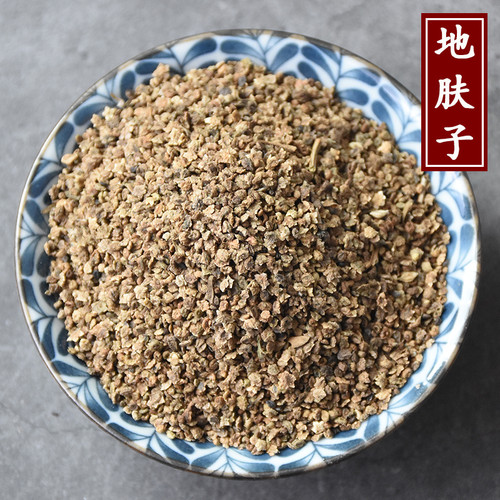Product Overview
Parts used: Dried fruit
TCM category: Herbs that stabilize and bind
TCM nature: Warm
TCM taste(s): Sour Sweet
Meridian affinity: Bladder Kidney
Scientific name: Rubus chingii
Use of palmleaf raspberries (Fu Pen Zi) in TCM
Please note that you should never self-prescribe TCM ingredients. A TCM ingredient is almost never eaten on its own but as part of a formula containing several ingredients that act together. Please consult a professional TCM practitionner, they will be best able to guide you.
Preparation: Harvest the fruit when it is green to yellow and remove the stems and leaves. Soak in boiling water or lightly steam, take it out and dry it.
Dosage: 6 - 12g
Main actions according to TCM*: Augments the Kidneys, restrains Essence. Stops leakage of Bodily Fluids.
Primary conditions or symptoms for which palmleaf raspberries may be prescribed by TCM doctors*: Enuresis Urinary incontinence Premature ejaculation Spermatorrhea Impotence Impaired vision Back pain
Contraindications*: Use with caution for Yin Deficiency patterns.
Common TCM formulas in which palmleaf raspberries are used*:
For impotence, spermatorrhea, premature ejaculation, weak and low sperm count combine palmleaf raspberries with plantain seeds (Che Qian Zi), cuscuta seeds (Tu Si Zi), goji berries (Gou Qi Zi) and schisandra berries (Wu Wei Zi).
For Kidney deficiency with lower back pain and impotence combine palmleaf raspberries with goji berries (Gou Qi Zi), plantain seeds (Che Qian Zi) and cuscuta seeds (Tu Si Zi).
For Liver and Kidney deficiency with diminished visual acuity combine palmleaf raspberries with prepared rehmannia (Shu Di huang), goji berries (Gou Qi Zi) and glossy privet fruits (Nu Zhen Zi).
For Kidney deficiency with spermatorrhoea, back pain and decreased sexual activity combine palmleaf raspberries with fenugreek seeds (Hu Lu Ba) and king solomon's seal roots (Huang Jing).
Key TCM concepts behind palmleaf raspberries (Fu Pen Zi)'s properties
In Traditional Chinese Medicine (TCM), palmleaf raspberries are plants that belong to the 'Herbs that stabilize and bind' category. This category of herbs is used for treating abnormal discharges and displacement of organs. This includes conditions such as diarrhea, discharges from the vagina, penis or rectum as well as prolapse of the uterus or rectum. It is important to note that herbs in this category only treat symptoms, so one should also use herbs to treat the underlying Deficiency.
Furthermore palmleaf raspberries are plants that are Warm in nature. This means that palmleaf raspberries tend to help people who have too much "cold" in their body, although with less effect than a plant that would be Hot in nature. Balance between Yin and Yang is a key health concept in TCM. Those who have too much cold in their body are said to either have a Yin excess (because Yin is Cold in nature) or a Yang deficiency (Yang is Hot in Nature). Depending on your condition palmleaf raspberries can help restore a harmonious balance between Yin and Yang.
Palmleaf raspberries also taste Sour and Sweet. The so-called "five elements" theory in Chinese Medicine states that the taste of TCM ingredients is a key determinant of their action in the body. Sour ingredients like palmleaf raspberries help with digestion and restrain abnormal discharges of fluids from the body, such as diarrhea or heavy sweating. On the other hand Sweet ingredients tend to slow down acute reactions and detoxify the body. They also have a tonic effect because they replenish Qi and Blood.
The tastes of ingredients in TCM also determine what organs and meridians they target. As such palmleaf raspberries are thought to target the Bladder and the Kidney. In TCM the impure water collected by the Kidneys that cannot be used by the body is sent to the Bladder for storage and excretion as urine. The Kidneys do not only regulate the urinary system but also play a key role in the reproductive system and the growth and aging process of the body.










